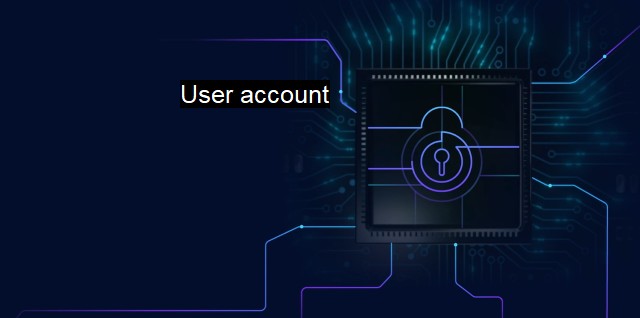What is User account?
Understanding User Accounts in Cybersecurity and Antivirus Software: Securing Individual Users and Limiting Security Breaches
In the realm of cybersecurity and antivirus software, it is vital to understand the concept of a user account. A user account is essentially an identity within a computer network that has a unique username and password, granting access to a set of files or applications. The password is used to authenticate the user’s identity, ensuring that no unauthorized access is granted.In essence, it is a means of securing individual users with specific permissions and actions within a computer network, limiting the damage caused by potential security breaches.
User accounts are necessary for a variety of reasons, including creating permissions for network resources, such as files and applications, and providing users with customized settings for their work environment, tailored to their roles within the network. Similarly, user accounts make identification more straightforward, enabling network administrators to revoke user access in response to possible security threats quickly.
To create a user account, a network administrator will typically receive the user's name, job title, reason for the account, and perhaps other personal details, such as email and phone number. This information assists network administrators with authentication and granting the appropriate permissions to various application and file servers on the network.
One of the most significant advantages of maintaining authentic user accounts is the accountability aspect. Computing security breaches represent an increasingly prevalent problem for organizations and are becoming more frequent because employees are not adhering to appropriate security standards, both in their account security practices, or overall computing behavior.
By holding personal user accounts, it becomes simpler for system managers to quickly point out the problematic account, monitoring their computing use and restricting their approval of any improper or unconstitutional behavior.
user accounts open up an avenue for security administrators to bolster their cybersecurity protocols- restricting password hygiene policies, preventing remote terminations, enforcing MFA across the network, and opting for other security measures. Computer networks can select to allow anyone, various realm groups, or just chosen individuals to access a given file. For systems with heightened security protocols, multi-factor approvals like sending a message to a randomly designated cell or second IP address may be employed.
With user accounts, connected internet devices could report breaches within the network, ensuring faster and greater transparency than network defenders or analysts within organizational days may discover.
user accounts can be abused if not appropriately managed. Attacking the corporate network via weak password protection used by personnel is a favorite tactic hackers enjoy to obscure their connection to an attack amidst user accounts within the security application layer. Basic safety protocols must be enforced by network administrators, requiring mandatory password complexity, regular password resetting, setting activity timeout limits goals, and two- or multi modes integrated protection authorizations. These become critical factors in preventing potential risk of cybersecurity exploiting user accounts.
Overall user accounts creating by network administrators ensure the network grant permission, and easily extracted data within office networks does not spill into the wrong hands. Technologies such as multifactor authentication present more hitches for cybercriminals, best done alongside other security architecture and protocols like endpoint protection, enabling organizations to detect early instances and potential threats before leading to an irremanoeuver bur procurement losses.

User account FAQs
What is a user account and why is it important for cybersecurity?
A user account is an identifier that allows an individual to access a computer system or network. When you create a user account, you have a unique set of credentials that act as your identity in the system, and allows you to perform certain actions that are associated with it. For cybersecurity purposes, having a user account will help to ensure that your data and devices are protected, and unauthorized access to your information is prevented.How do I create a strong user account password?
To create a strong user account password, you should include a mix of uppercase and lowercase letters, numbers, and special characters. Avoid using common words and phrases, and try to make your password at least 8-10 characters long. Make sure to also change your password regularly to prevent any unauthorized access.What should I do if I suspect my user account has been compromised?
If you suspect that your user account has been compromised, you should immediately change your password and run a full antivirus scan on your device. You should also notify the relevant authorities or your IT department, and consider implementing multi-factor authentication to further secure your account.Can I use the same user account password for multiple accounts?
It is not recommended to use the same user account password for multiple accounts, as it makes it easier for hackers to gain access to all of your accounts if they manage to obtain your password. Instead, use unique passwords for each account and consider using a password manager to help you keep track of them all. External Resources
| | A | | | B | | | C | | | D | | | E | | | F | | | G | | | H | | | I | | | J | | | K | | | L | | | M | |
| | N | | | O | | | P | | | Q | | | R | | | S | | | T | | | U | | | V | | | W | | | X | | | Y | | | Z | |
| | 1 | | | 2 | | | 3 | | | 4 | | | 7 | | | 8 | | |||||||